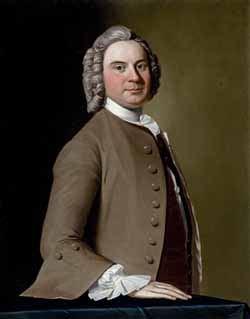Yesterday I presented a petition sent to the
Massachusetts General Court in late 1780 and printed in Massachusetts newspapers the following January.
The petitioner,
Isaac Freeman, presented himself as a “poor
negro” and an ultra-patriotic citizen of Massachusetts. He said he was a veteran of the Battle of
Lexington and
Concord and the Battle of
Bunker Hill, where he had lost considerable property.
Freeman also told the legislature, “I…remain a faithful soldier to this hour,” but he didn’t describe any further military service. The document never stated what company or regiment Freeman served in, nor what town he lived in. Such information would surely have helped his petition.
There are several entries for men named Isaac Freeman in
Massachusetts Soldiers and Sailors of the Revolutionary War, but none of those men is described as black, and none has a record of service covering the Battle of Bunker Hill. George Quintal’s thoroughly researched report for the National Park Service on men of African and
Native ancestry in the
New England army during the Battle of Bunker Hill likewise has no entry to Isaac Freeman.
Despite that lack of confirming information, on 16 November the legislature
Resolved, That there be paid out of the public treasury of this Commonwealth, the sum of five pounds of the bills of the new emission, in full for his losses set forth in said petition.
With inflation ruining the value of the currency, that wasn’t a big grant. But it was something. The legislators could have given Freeman leave to withdraw his petition, which was the polite legal way to say no, and they didn’t.
I half think the General Court gave Freeman £5 for the petition’s literary qualities. In ornate, powerful
language it reviled both the
British enemy and provincial cowards at Bunker Hill. It praised the new Massachusetts state constitution. There was even a bit of poetry thrown in.
In the Suffolk County probate records I found documents that might shed more light on Freeman. A 1782 file for “Isaac Freeman Free Negro,” also identified as a “Labourer,” starts with the will he signed his mark to on 24 January. Well inscribed and full of legal language, the will says first, “My Body I commit to the Dust with
decent Burial.” It goes on:
In Consideration of the Care and Kindness I have received from Mr. Dimond Morton of Boston, both in time of my Sickness, & at all other times, I give devise and bequeath to the said Dimond Morton all my Estate real personal or mixt, whether in possession Action or Reversion, wheresoever the same may be found, to hold to him the said Morton his Heirs and Assigns forever.—
The will also appointed Dimond Morton as executor. In other words, I suspect, Morton could keep anything he found of Freeman’s as long as he made sure the man received a “decent Burial.”
Morton ran a well established inn in Boston, the Sign of the Black and White Horse. His father had been an innkeeper as well, moving into town from
Plymouth. In 1770 Morton witnessed the
Boston Massacre. Having joined the
Ancient and Honorable Artillery Company in 1765, he served as a captain in Col.
Henry Knox’s
artillery regiment for the year 1776. Later in the war he invested in
privateers and mercantile ventures.
The connection between Freeman and Morton also offers an explanation for how a man who couldn’t sign his name was able to submit a long legal petition that verged on literature. The innkeeper’s younger brother was
Perez Morton (shown above), a rising lawyer. In fact, Perez was surety for the bond Dimond had to submit to the probate court in settling the Freeman estate. And Perez had literary interests even before he married the poet
Sarah Wentworth Apthorp.
While studying for his master’s degree at
Harvard, Perez Morton composed some of the verses in
William Billings’s
New England Psalm-Singer. His funeral oration for
Dr. Joseph Warren included three bursts of poetry; one was borrowed from
Mercy Warren, and the other two I can’t identify, offering the possibility that they were his own compositions.
I theorize that Perez Morton composed the petition for Isaac Freeman, indulging himself in florid prose and throwing in a couplet he adapted from John Pomfret. The brothers used their connections to push the small grant for Freeman through the legislature. And one or the other probably slipped the composition to the
Boston Gazette as well. Freeman gained some recognition and a little bit of cash, but some of that probably went to Dimond Morton for medical expenses or when he died less than two years later.
TOMORROW: The biggest mystery of Isaac Freeman.









